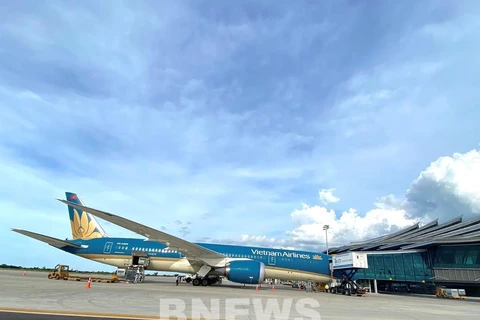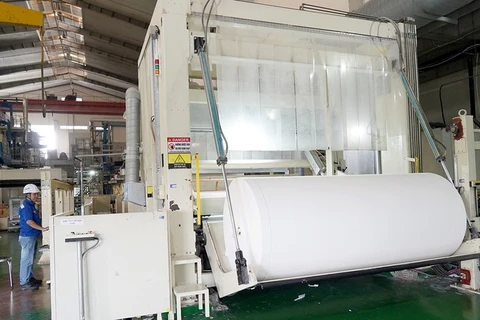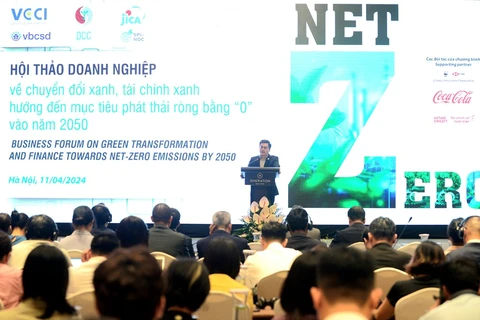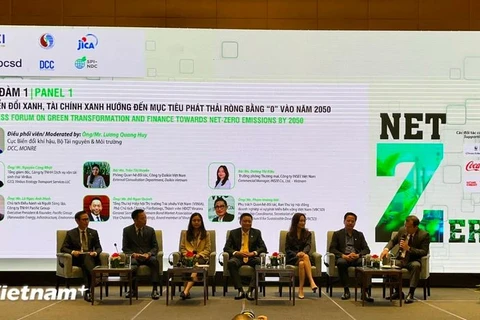
Hanoi (VNA) - Deputy Minister of Natural Resources and Environment Le Cong Thanh said after 30 years of participating in the Vienna Convention and the Montreal Protocol, Vietnam has been internationally recognised as an active and highly responsible member in managing and eliminating ozone-depleting substances and greenhouse gases, achieving many important results.
According to statistics, Vietnam has eliminated the consumption of the equivalent of 220 million tons of CO2.
Speaking at a conference celebrating 30 years of Vietnam implementing the Vienna Convention and Montreal Protocol on September 16, Thanh said shortly after joining the Convention and the Protocol in 1994, Vietnam launched the National Programme for the Gradual Elimination of Ozone-Depleting Substances in 1995. It also established the National Programme Office to coordinate and implement activities to eliminate substances controlled under the Montreal Protocol from 1996.
Through activities to eliminate ozone-depleting substances and greenhouse gases, Vietnam annually contributes to reducing emissions by more than seven million tonnes of CO2 and equivalent greenhouse gases. It has trained about 10,000 state management officials, businesses, lecturers and technicians.
On June 11, 2024, the Prime Minister issued a national plan on the management and elimination of ozone-depleting substances and controlled greenhouse gases. The plan has integrated sustainable cooling activities, encouraged the use of energy-saving cooling equipment and the use of substances with low or zero global warming potential.

“If implemented according to the roadmap, by 2045 Vietnam will reduce emissions by more than 11 million tonnes of carbon, contributing to achieving net-zero emissions by 2050,” said Thanh.
While Vietnam’s 30-year efforts under the Vienna Convention and Montreal Protocol have been internationally recognised, there are still obstacles, said Tang The Cuong, head of the Department of Climate Change under the Ministry.
For example, although Vietnam has established a system of policies and laws on ozone layer protection, as well as management of ozone-depleting substances and controlled greenhouse gases, there is still a lack of technical regulations for effective implementation.
Regarding human resources, there is a shortage of qualified and experienced officials in state management agencies, and experts and technicians with in-depth knowledge of new technologies.
In terms of resources and technology, many Vietnamese enterprises do not have sufficient financial resources to convert to new and modern technology.
To implement the National Plan and the commitments that Vietnam has participated in more effectively, Deputy Minister Le Cong Thanh emphasized that the country needs to improve institutions and policies on management, elimination of controlled substances and promulgate standards, regulations and technical guidelines. It also needs to strengthen inter-sectoral coordination in inspection and supervision of law enforcement, strengthen control of import and export and the use of controlled substances, in which import and export management agencies, market management agencies and customs forces play crucial roles.
Along with that, Vietnam needs to support and encourage technology conversion activities using climate-friendly substances, promote the collection, recycling, reuse, and treatment of controlled substances according to the Montreal Protocol./.























